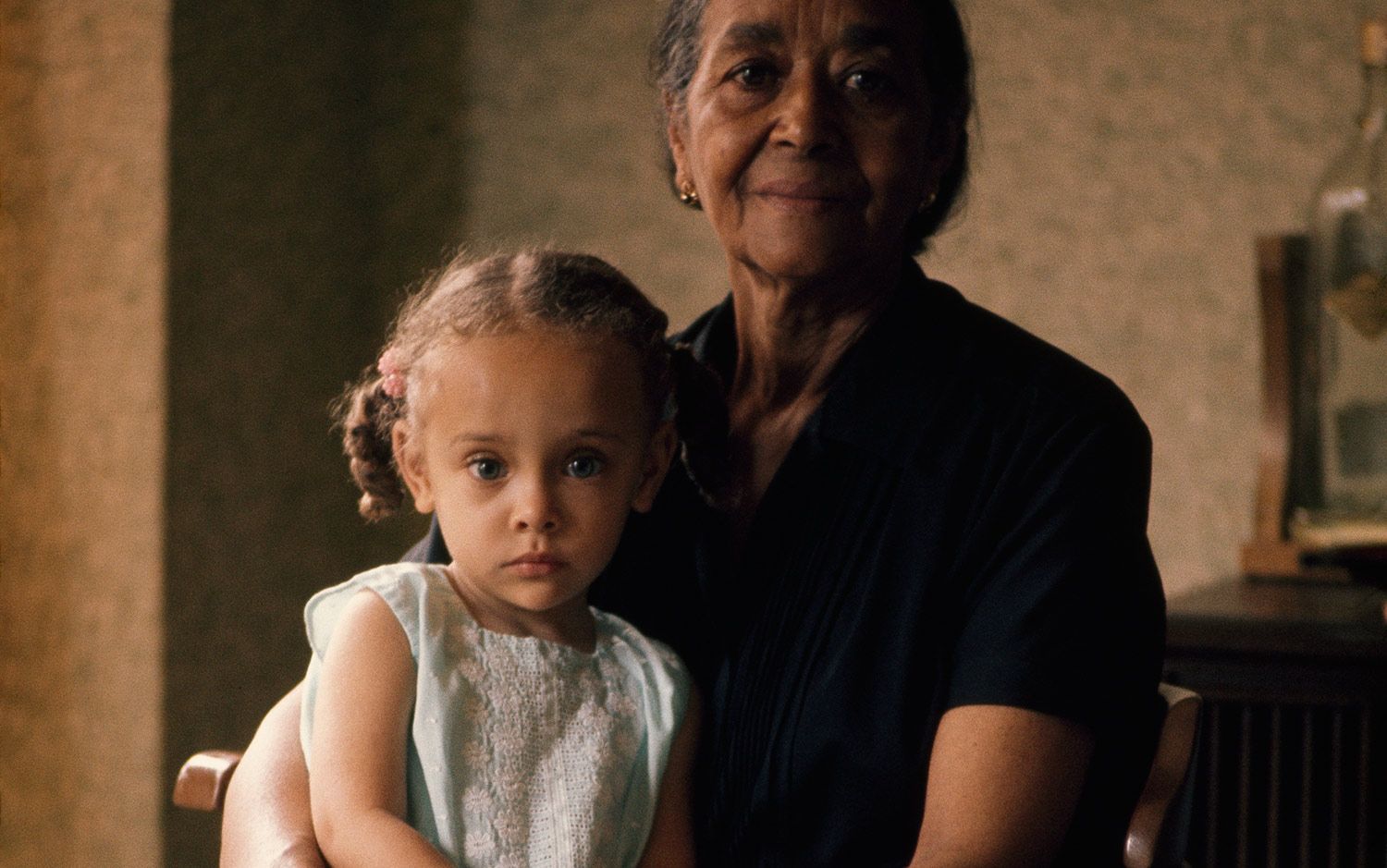The future is mixed-race
Aeon
2017-02-02
Scott Solomon, Professor in the Practice
Department of BioSciences
Rice University, Houston, Texas
Edited by Sam Dresser

A grandmother and granddaughter from Cape Verde. Photo by O. Louis Mazzatenta/National Geographic |
And so is the past. Migration and mingling are essential to human success in the past, the present and into the future
In the future, a lot of people might look like Danielle Shewmake, a 21-year-old college student from Fort Worth, Texas. Shewmake has dark, curly hair, brown eyes, and an olive skin tone that causes many to mistake her heritage as Mediterranean. Her actual pedigree is more complex. Her father is half-Cherokee and half-Caucasian, and her mother, who was born in Jamaica, is the child of an Indian mother and an African and Scottish father.
‘My sister and I are just a combination of all that,’ she says, adding that she dislikes having to pick a particular racial identity. She prefers the term ‘mixed’.
Differences in physical traits between human populations accumulated slowly over tens of thousands of years. As people spread across the globe and adapted to local conditions, a combination of natural selection and cultural innovation led to physical distinctions. But these groups did not remain apart. Contact between groups, whether through trade or conflict, led to the exchange of both genes and ideas. Recent insights from the sequencing of hundreds of thousands of human genomes in the past decade have revealed that our species’ history has been punctuated by many episodes of migration and genetic exchange. The mixing of human groups is nothing new.
What is new is the rate of mixing currently underway. Globalisation means that our species is more mobile than ever before. International migration has reached record highs, as has the number of interracial marriages, leading to a surge of multiracial people such as Shewmake. While genetic differences between human populations do not fall neatly along racial lines, race nevertheless provides insight into the extent of population hybridisation currently underway. This reshuffling of human populations is affecting the very structure of the human gene pool…
Read the entire article here.
